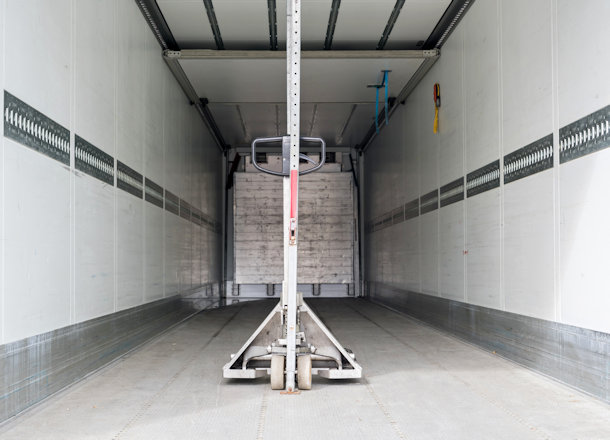If your pickup truck just doesn’t let you haul as much as you’d like, it might be time to start looking at trailers. Pull-behind trailers for general contractors come with a seemingly endless amount of variety, and which type you need depends largely on what you need it for. Other factors, such as price and availability also come into play.
Open or Closed Trailer
One of the first considerations is whether you need an open or closed trailer. Closed trailers are generally better for hauling tools and small quantities of materials, while open trailers allow you to better carry bulky supplies and oversized materials. If you do a lot of residential work, for example, a closed trailer might allow you to carry a variety of tools for a day’s worth of different jobs. A contractor working a lot of large commercial gigs may find an open trailer better for hauling large quantities of flooring or wallboard.
Your climate may also factor into whether you choose an open or closed trailer. Closed trailers can sit parked in your driveway even in rain or snow. An open trailer, however, needs to be housed under an enclosure if loaded up during a weather event, although tarps and other coverings can mitigate this need.
Rent or Buy
Will you use a trailer frequently or do you simply need it to get through a particularly busy stretch? Not sure if you’re sold on a closed trailer or open one? Consider renting a pull-behind instead of buying one. While used trailers can sometimes go for a song, renting a trailer means you’re only paying for the time you use it – and won’t need to figure out how to store it when you don’t.
If you’re certain it’ll bring a valuable expansion in hauling space to your business, buying a new or gently used trailer can be a sound investment.
What’s Inside?
Setting up your trailer is largely a matter of personal preference. Some contractors outfit the inside of their trailers with beadboard to hang tools, while others add shelving and benches to create a mobile workshop. Still, others leave it as empty as possible to leave room for materials. Take a look at how other contractors have set up their trailers to see what does or doesn’t work – and go from there.
Some trailers include a stock setup for your needs – for example, tool storage, work benches or tie downs. Do some research and figure out what sounds appealing, what’s necessary and what’s not.
Can You Haul It?
Not all trailers are created equal and some weigh a lot more than others. A half-ton pickup may not be sufficient to pull a fully loaded, large trailer full of materials and tools. Before you pull the trigger on buying a trailer, make sure you’re able to get it to and from the jobsite. If not, either look at a lighter or smaller trailer or consider upgrading your work vehicle in addition to or instead of buying a trailer.
Trailer Setups for GCs
Trailer setups are infinitely customizable and there are too many variables to generalize. What works for one business owner might not work for another. Look at the types of jobs you do, what you’ll be hauling and where you work and store your vehicles to get a sense of what your needs are. If you’ll only need a trailer on an occasional or temporary basis, consider renting one instead of buying. Look at the setups offered stock with some trailers or those outfitted by other general contractors to see what strikes your fancy.
How is your work trailer set up?

